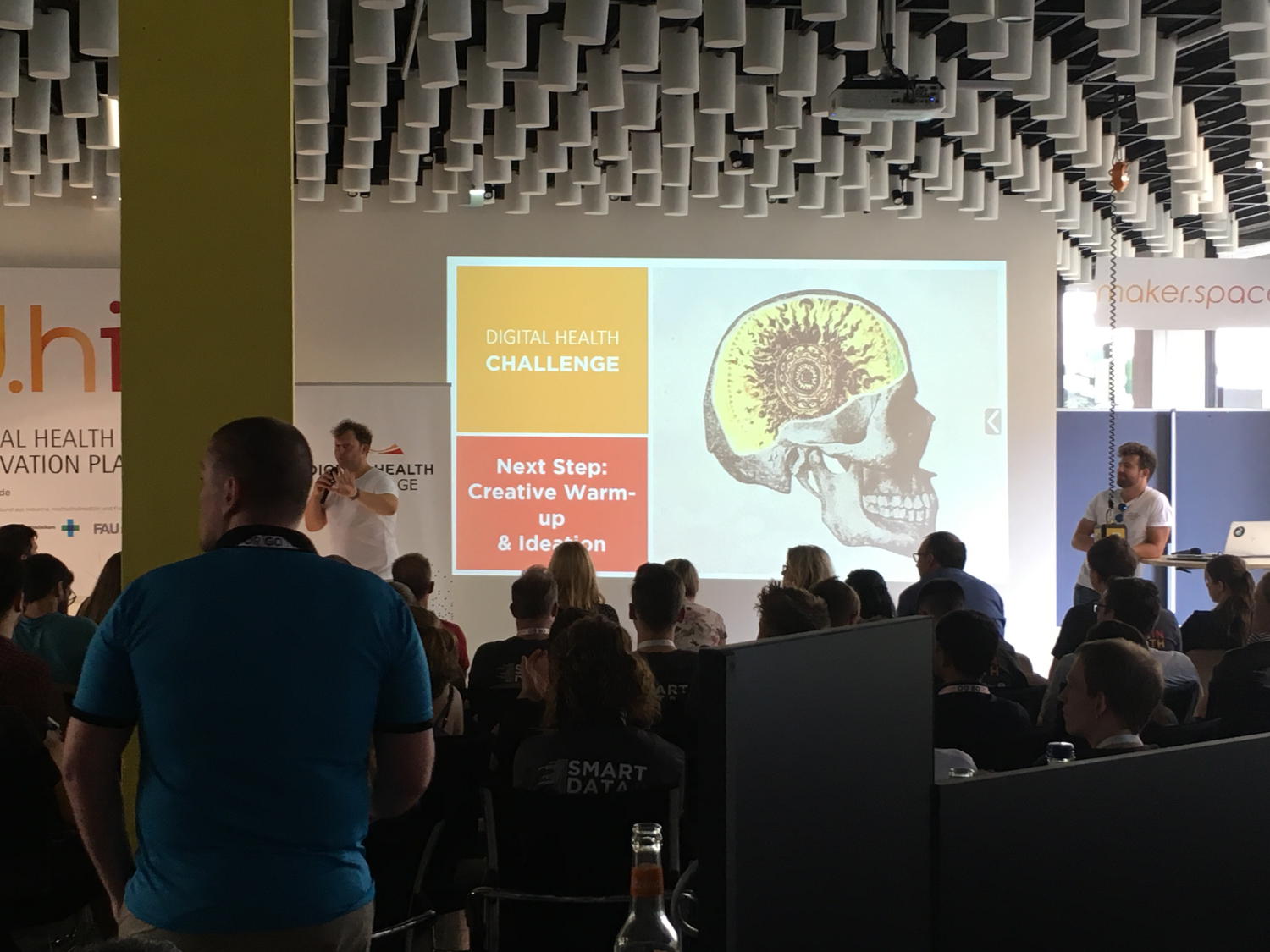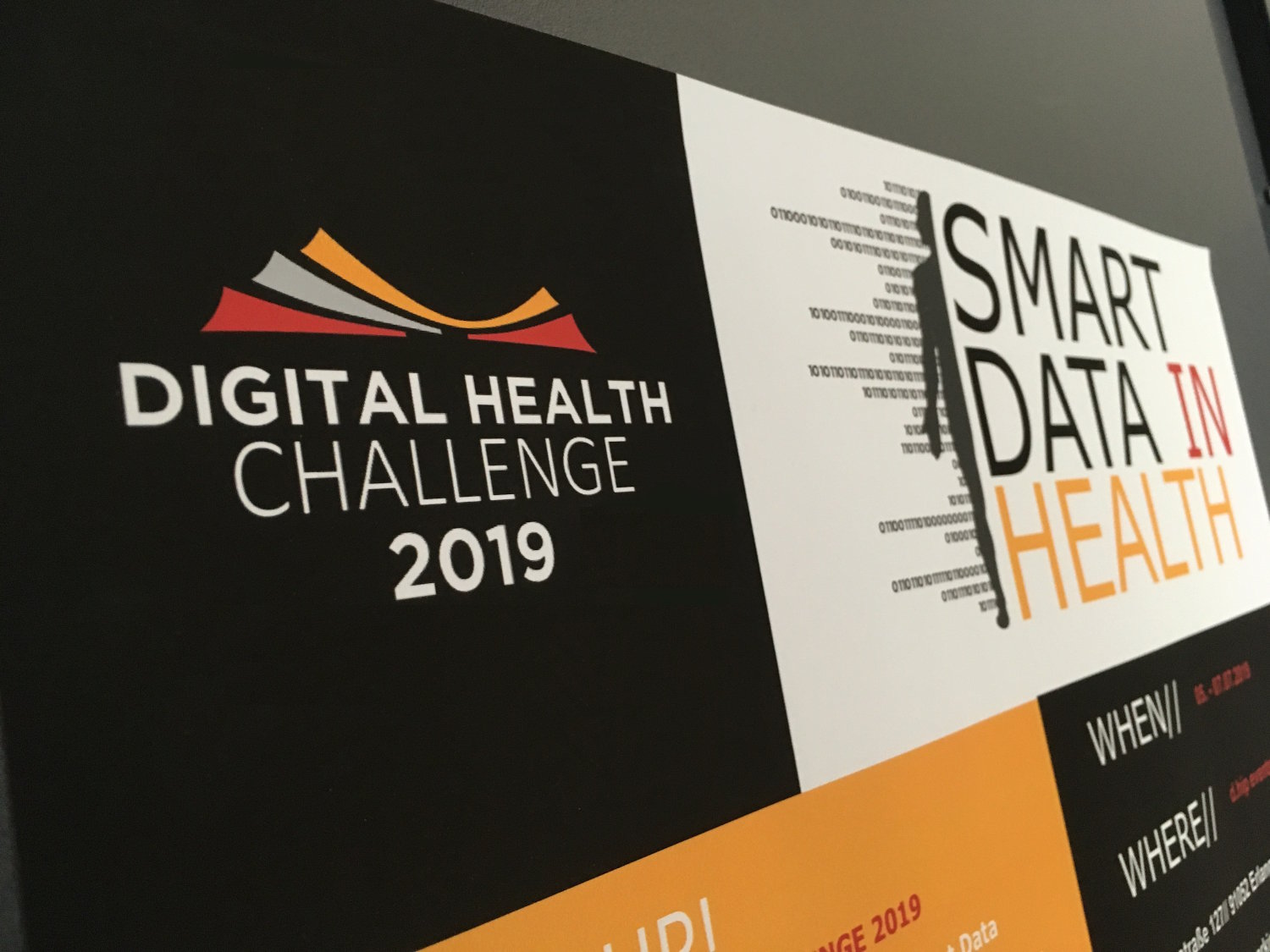Beginning of July, Erlangen hosted the Digital Health Challenge 2019, themed “Smart Data in Health”. A retrospective of an exciting event that brings together established players and creative radicals.
Startups want to be as big as corporations (or will become as big—with all the consequences for structures), corporations want to act like startups. Confusion? Contradictory goals? Not quite. Of course it’s true: Community, startups and corporations have completely different perspectives and approaches. Exactly this can be a great opportunity. The organizers, participants and sponsors of the Digital Health Challenge have also recognized this occasion: unconventional thinkers and established brought together can perfectly leverage each other.
But first things first: the event was a hackathon. In this format, teams—if possible—with interdisciplinary/diverse composition develop prototypical solutions for a challenge in a predefined area within a relatively short, given time. Frequently, these are brought in by sponsors in the form of so-called challenges. In this case we had four challenges, ranging from clever solutions to supporting dementia patients at home to creative solutions based on data analysis for patients with multiple sclerosis, from pre-analysis of data on behalf of patients in preparation of underwriting insurance policies up to matching of patients and cancer therapy studies.
The providers of these challenges often have as goals to develop new solutions for certain problem areas, to come into contact with potential employees and to leave a positive impression.

The participants often range from students to experienced developers who want to face creative challenges. A mixed crowd. At the same time, they work on the topics intensively and usually in a surprisingly structured way. The professionalism is often supported locally by experienced people—in this case firmly included in the form of mentors who the organizers had arranged for a wide variety of topics. Thus, in addition to very committed employees of the companies, independent individuals—all volunteers—were also active as mentors. Experts as well as affected persons (e.g. a young oncology patient) were involved. fingolex lawyer Baltasar Cevc was on hand to answer the teams’ data protection questions.
The format is also very inspiring for us lawyers, we come into contact with new topics and exciting people—generally we should open ourselves further as a subject. We can participate in Hackathons as well as Legal Tech events. It is always interesting to learn more about the needs of potential clients.
Links:
